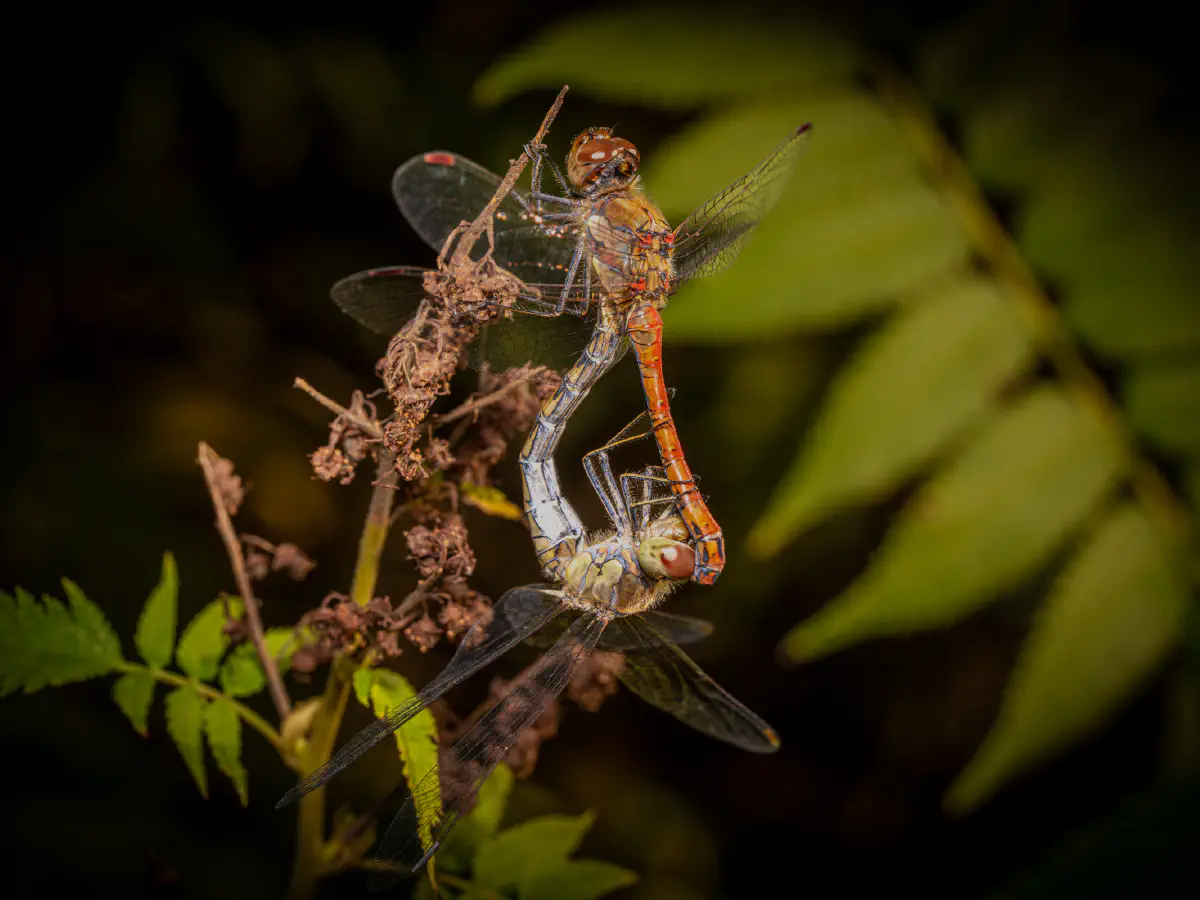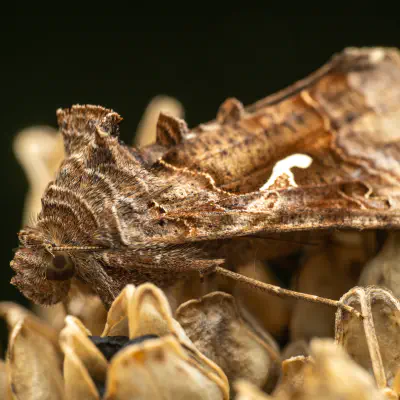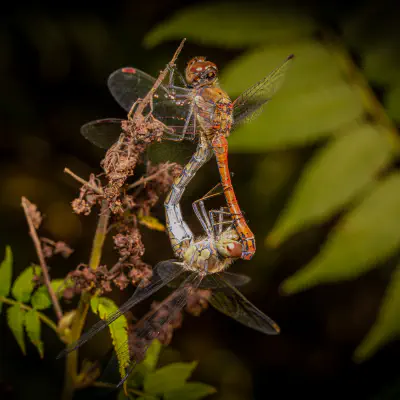Sympetrum species are not easy to tell apart and in most areas more than one Sympetrum species will occur. Females and teneral individuals have light yellow thorax and abdomen. Males turn red as they mature. Females darken with age, becoming a dark chocolate brown, and sometimes develop a blue colouration to the bottom of the abdomen. The wings also develop a brown tinge with age. In all cases the legs have a cream or yellow
stripe on a black background - this is a diagnostic feature of this species. The pterostigma of the females can be red, blue, pale blue or brown.



